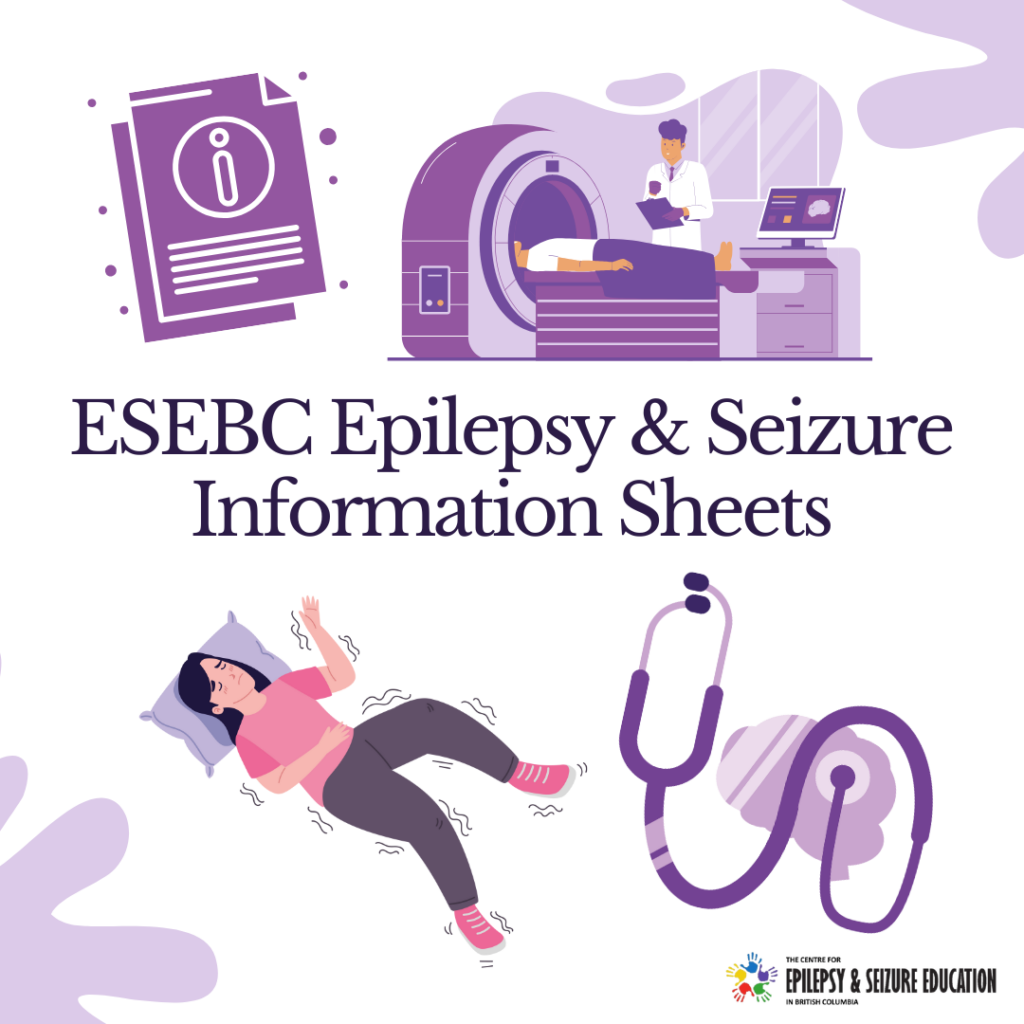ESEBC Information Sheets

Questions to ask your Neurologist: Offers a list of important questions for patients and caregivers to ask during neurologist consultations, ensuring they receive comprehensive care and information.
Epilepsy Fact Sheet: Provides an overview of epilepsy, including its causes, symptoms, and treatment options.
Children & Epilepsy Provides essential information for families to understand epilepsy in children, including its causes, symptoms, treatment options, and how to support a child living with the condition.
Frequently Asked Questions About Epilepsy: Answers common questions about living with epilepsy, including diagnosis, management, and misconceptions.
Seizure First Aid: What to Do During a Seizure: Offers clear, step-by-step instructions on how to respond during a seizure to ensure safety and effective support.
Seizure Safety Tips for Daily Activities: Provides practical advice for individuals with epilepsy and their families to help minimize seizure risks during everyday tasks.
Seizure Types & First Aid: Offers clear, step-by-step instructions on how to respond during a seizure to ensure safety and effective support.
Medical Identification and Safety Devices: Highlights the importance of medical IDs and safety devices for individuals with epilepsy, ensuring they receive prompt assistance during emergencies.
Electroencephalography (EEG) for Epilepsy: Provides an overview of EEG, a diagnostic test used to measure electrical activity in the brain and diagnose epilepsy.
Functional Magnetic Resonance Imaging for Children with Epilepsy (fMRI): Describes how fMRI is used to evaluate brain activity in children with epilepsy, helping to guide treatment decisions.
Epilepsy & Genetics: Explores the role of genetics in epilepsy, including how genetic factors may influence the condition’s onset and treatment.
Epilepsy and Neuropsychology: Examines the cognitive and emotional impact of epilepsy, including how neuropsychological assessments can guide treatment and support.
